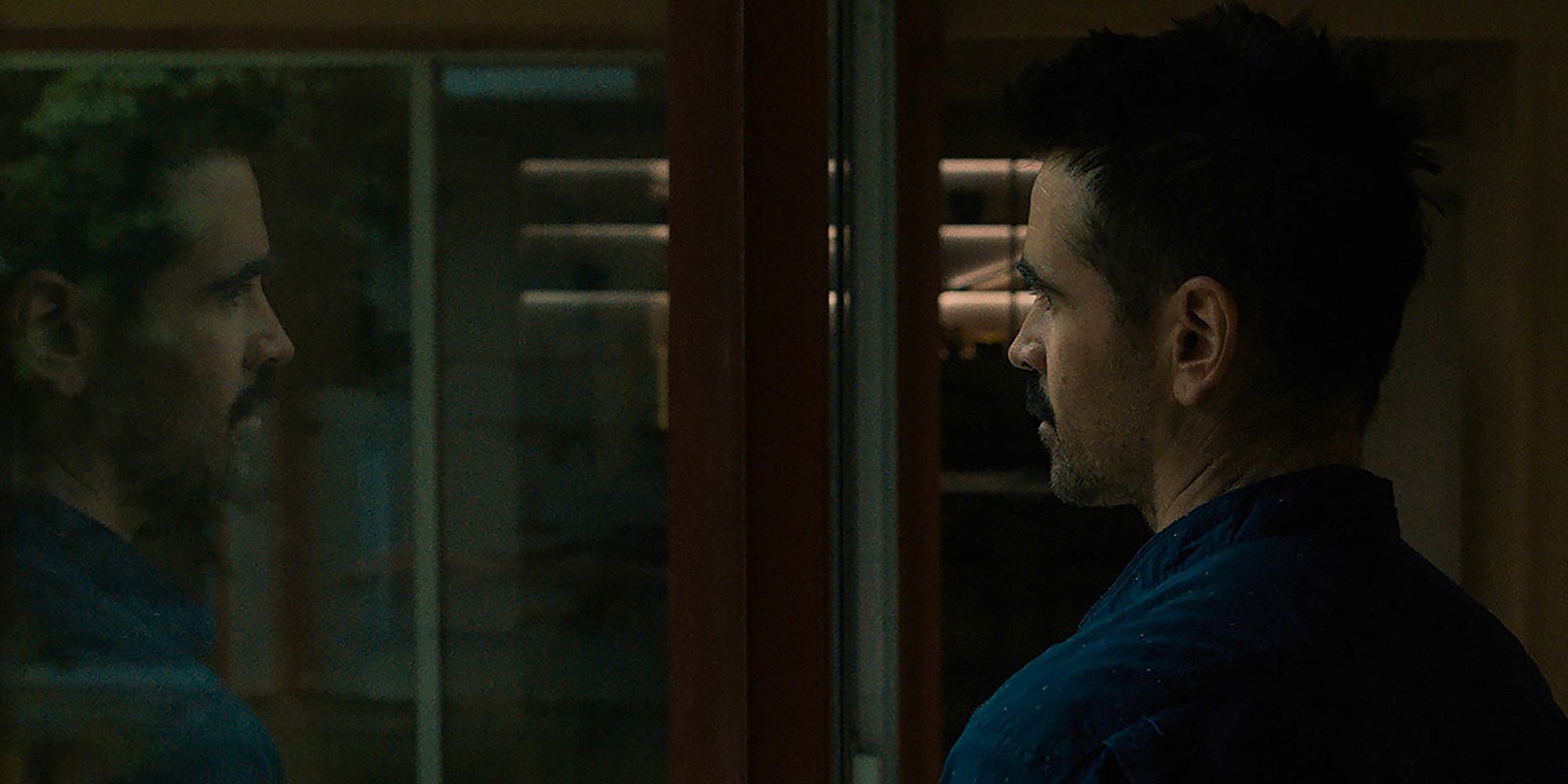In his sophomore feature film, After Yang, writer-director Kogonada, working from a short story by Alexander Weinstein, explores the future and the role of artificial intelligence in it. Justin H. Min (The Umbrella Academy) gives an understated, nuanced performance as Yang, but the film never rises to meet the strength of his portrayal. After Yang has moments of beauty and a lovely core message, but it’s too slowly paced and detached from its own story to fully reach its potential.
Jake (Colin Farrell) and Kyra (Jodie Turner-Smith) have relied on Yang (Min), a techno-sapien the couple bought to help teach their adopted daughter, Mika (Malea Emma Tjandrawidjaja), about her Chinese heritage. After breaking down, the family must come to terms with life without him and address the very issues they’ve been sweeping under the rug for so long. Jake and Kyra wonder if they’ve relied too much on Yang over the years, while not spending enough time with Mika. As Jake works to fix Yang or decide to take him to the techno-sapien museum run by Cleo (Sarita Choudhury), he begins watching the stored memories Yang has acquired over the course of his life.
After Yang never feels like a fully realized world. The biggest downside is that the audience experiences Yang’s life only after he’s gone. It’s a disservice to the character, especially considering his memories are only witnessed through Jake. What’s more, the conflict between Jake and Kyra is undercooked and their feelings toward having Yang around, as well as any potential attachments to him, are never truly expanded upon. The film certainly has something to say about adopting a child from another culture and how crucial it is to have someone who can relate to them in that way, but it ultimately remains very surface-level in its exploration.
That said, the film finds its emotional center when Jake begins traversing through Yang’s memories — a few seconds recorded from each day that meant something to the A.I. personally. It’s ironic that the techno-sapien would be the one to infuse After Yang with so much heart and sentimentality while the humans seem to have forgotten how to show any, cold and distant as they are from each other in many ways. Through Yang, Kogonada showcases the beauty in everyday life, the little things that so often go forgotten but are what largely makes up the human experience.
In these memories, Yang watches Ada (Haley Lu Richardson), a clone who was seeing him, dance, an expression of happiness lighting up her face; he drinks tea and wonders what it would be like to have memories of actually being a man of Chinese heritage vs. only knowing trivia about the culture; he answers Mika’s curious questions with patience and kindness. Yang looks at himself in the mirror as though he’s perfectly aware of who he is, while yearning to be something more. These scenes are the most engaging the film ever gets. To that end, Min beautifully captures Yang’s feelings in these memories and infuses the character with so much humanity and gentle care that it’s hard not to mourn his demise.
Watching life through the few seconds he’s recorded is the most emotion Kogonada offers in this somewhat stiff, futuristic world. Jake’s seeming discomfort with tech and science advancements — he doesn’t like clones — begins to ease as the film goes on, but there isn’t enough depth to make up for the lull, intensely detached and disinterested characterization of this world. This applies to almost every other character as well. There is something to be said about Yang’s humanity as an A.I. and the effect he’s had on those around him, especially as everyone else has seemingly forgotten how to enjoy life. It’s therefore heartwarming and emotional to watch Yang’s life play out, but the film ultimately takes its time getting there. With such a slow and empty buildup, After Yang often feels as disconnected as most everyone is in the film.
After Yang screened at the 2022 Sundance Film Festival. The film is 101 minutes long and is rated PG for some thematic elements and language.

